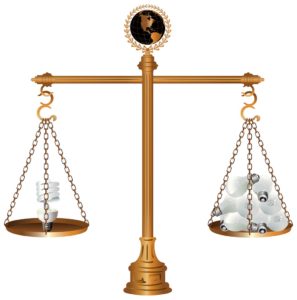
Posner Pens a Primer on Promissory Fraud
Sharp Thinking
Thinking
No. 59 Perspectives on Developments in the Law from The Sharp Law Firm, P.C. March 2012
Posner Pens a Primer on Promissory Fraud
By John T. Hundley, Jhundley@lotsharp.com, 618-242-0246
The murky waters surrounding alleged “promissory fraud” and “letters of intent” received noteworthy explications from the U.S. Court of Appeals for the Seventh Circuit recently.
Writing in BPI Energy Holdings, Inc. v. IEC (Montgomery), LLC, 664 F.3d 131 (7th Cir. 2011), Circuit Judge and prolific author Richard Posner shed significant light on those two areas of law, which pose significant risks for lawyers and businessmen.

Posner
“Letters of Intent”: In BPI, plaintiffs and defendants entered into first a “memorandum of understanding” and then a “letter of intent” under which plaintiffs were to transfer  their options and leases for potential coal-producing properties to defendants and defendants were to lease to plaintiffs the right to extract methane from those properties. Both documents stated that they did not constitute binding agree-ments and contemplated a further written contract. Nonetheless plaintiffs commenced transferring their leases and options to defendants before any final agreement had been signed.
their options and leases for potential coal-producing properties to defendants and defendants were to lease to plaintiffs the right to extract methane from those properties. Both documents stated that they did not constitute binding agree-ments and contemplated a further written contract. Nonetheless plaintiffs commenced transferring their leases and options to defendants before any final agreement had been signed.
Posner rejected the idea that such documents could constitute or evidence a contract notwithstanding the disclaimers. While a “document can be a contract without calling itself a contract,” he wrote, “when a document says it isn’t a contract, it isn’t a contract.”
“Promissory Fraud”: Next the court addressed the allegations of fraud. Illinois recognizes “promissory fraud” only if it is part of a scheme to defraud, Posner noted. As defined by Illinois courts, a “scheme to defraud” requires a pattern of fraudulent statements “or one particularly egregious fraudulent statement,” he wrote.
However, “the fact that a party breaks a contract doesn’t show that its promise to perform it had been fraudulent when made – that is, that the party had never intended to  perform it,” the court said. “Otherwise every victim of a breach of contract could sue for fraud, trading a slightly higher burden of pleading and proof (pleading with particularity, and proof by clear and convincing evidence rather than by a mere preponderance), and a shorter statute of limitations . . . for a shot at punitive as well as compensatory damages, while avoiding the Statute of Frauds and the parol evidence rule and any other defenses to suits
perform it,” the court said. “Otherwise every victim of a breach of contract could sue for fraud, trading a slightly higher burden of pleading and proof (pleading with particularity, and proof by clear and convincing evidence rather than by a mere preponderance), and a shorter statute of limitations . . . for a shot at punitive as well as compensatory damages, while avoiding the Statute of Frauds and the parol evidence rule and any other defenses to suits
•••••••••••••••••••••••••••••••••••••••••••••••••••••••••••••••••••••••••••••••••••••••••••••••••••••••••••••••
“Respondents in Discovery” Article Available…
An article by Sharp Thinking editor John Hundley exploring the intricacies of Illinois’  Respondents in Discovery Statute (735 ILCS 5/2-402) is being published by the Southern Illinois University Law Journal.
Respondents in Discovery Statute (735 ILCS 5/2-402) is being published by the Southern Illinois University Law Journal.
Respondents in Discovery: A Beneficent Statute With Traps for the Unwary, 36 S.I.U.L.J. 335 (2012), follows a thorough history of the legislative development of the statute with a comprehensive survey of case decisions in a variety of areas, including: the nature of the statute, the procedures for invoking it, statute of limitations issues, issues that arise in attempting to extend its six-month deadline for converting respondents to defendants, issues that arise in actually attempting to convert respondents into defendants, issues that arise when attempting to discard use of the statute after it has been invoked, the applicability of the statute in federal cases, and matters of appellate review.
A limited number of copies of the article will be available to Sharp Thinking readers. If you would like a copy, email Brenda@lotsharp.com.
•••••••••••••••••••••••••••••••••••••••••••••••••••••••••••••••••••••••••••••••••••••••••••••••••••••••••••••••
for breach of contract but not for fraud,” Posner noted (citations omitted). But “neither a breach of contract nor an invocation of legal remedies in an effort to wiggle out of a disadvantageous commercial relationship is fraud”, he said.
Moreover, “even if there were proof of fraud, BPI’s case would collapse for want of justifiable reliance,” Posner wrote. Noting that some authorities have said the reliance must be “reasonable”, he rejected the implication that the reliance requirement means freedom  from contributory negligence. “Reliance on a fraudulent representation need only be ‘justifiable,’” he wrote, “by which is meant ‘not reckless,’ in other words not willfully embracing a substantial risk” (citations omitted). The disclaimers in the memorandum of understanding and letter of intent put BPI on notice that it was assuming a risk in transferring its interests without a final agreement having been reached, and if one gambles and loses “you have only yourself to blame,” Posner said.
from contributory negligence. “Reliance on a fraudulent representation need only be ‘justifiable,’” he wrote, “by which is meant ‘not reckless,’ in other words not willfully embracing a substantial risk” (citations omitted). The disclaimers in the memorandum of understanding and letter of intent put BPI on notice that it was assuming a risk in transferring its interests without a final agreement having been reached, and if one gambles and loses “you have only yourself to blame,” Posner said.
A couple of observations can be offered in response to the BPI opinion.
First, the opinion demonstrates the critical nature of expressly dealing with whether a contract is  being created when entering into “letters of intent” and “memoranda of understanding”. Absent contractual disclaimers, such docu-ments can be held to constitute a contract.
being created when entering into “letters of intent” and “memoranda of understanding”. Absent contractual disclaimers, such docu-ments can be held to constitute a contract.
Second, Posner’s primer on promissory fraud ought to be required reading for every lawyer who attempts to turn a contract case into a one involving fraud – and for every lawyer who thinks a promise to perform a future act can never constitute fraud. Posner’s rhetoric is a little strong in spots, but his explication on those issues is the best we’ve seen – and long overdue.
THE SHARP LAW FIRM, P.C.
1115 Harrison, P.O. Box 906, Mt. Vernon, IL 62864 • Telephone 618-242-0246 • Facsimile 618-242-1170
Business Transactions • Litigation • Financial Law • Problem Finances • Real Estate • Corporate • Commercial Disputes • Creditors’ Rights •
Arbitration • Employment Matters • Estate Planning • Probate
59
